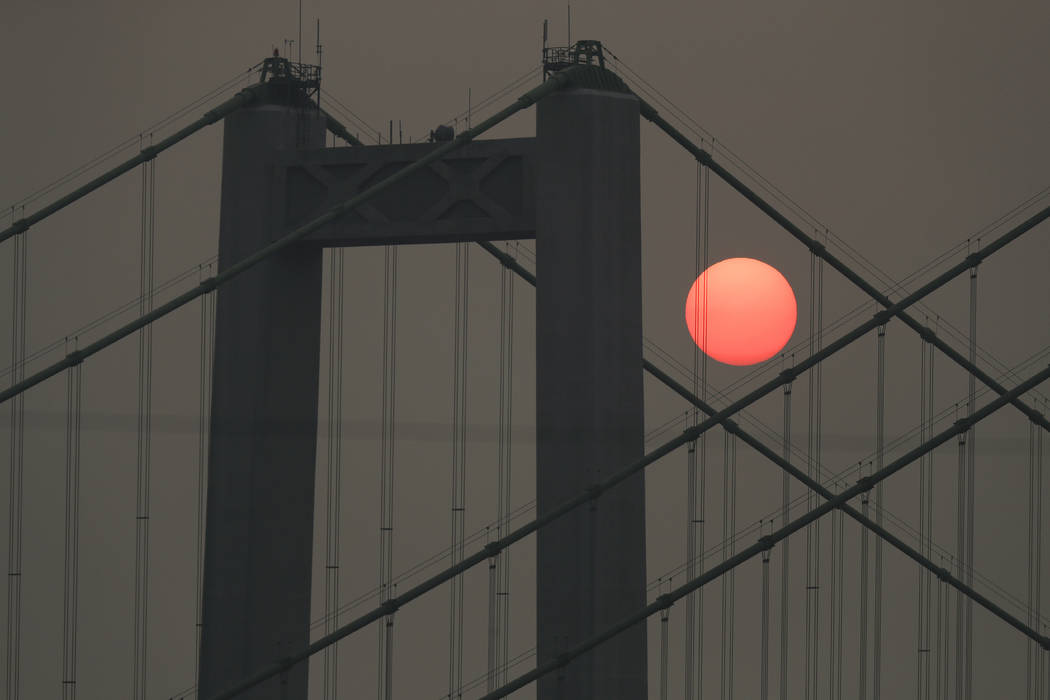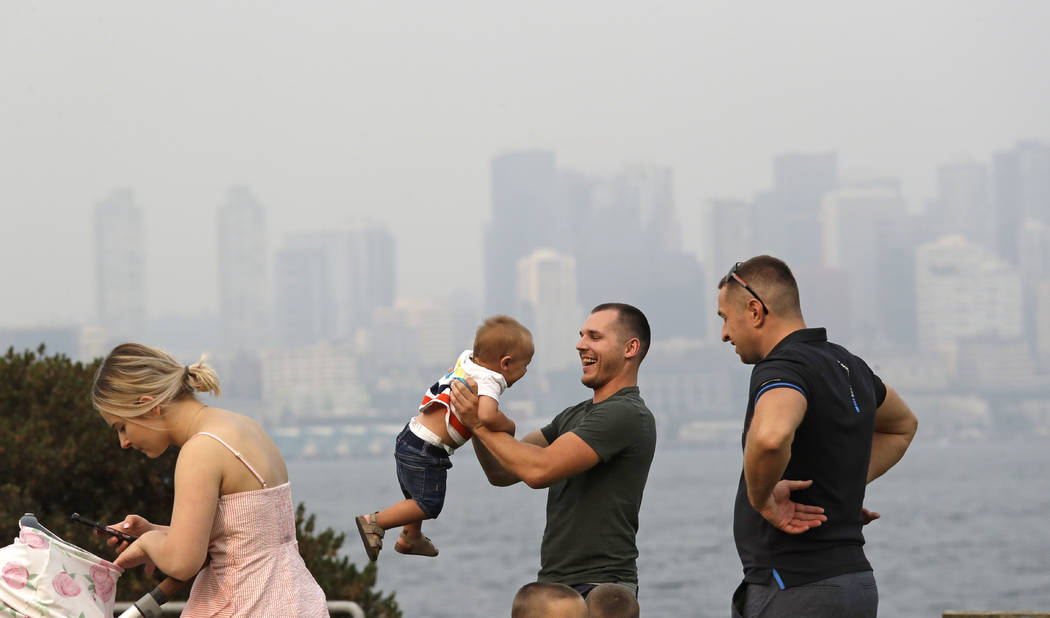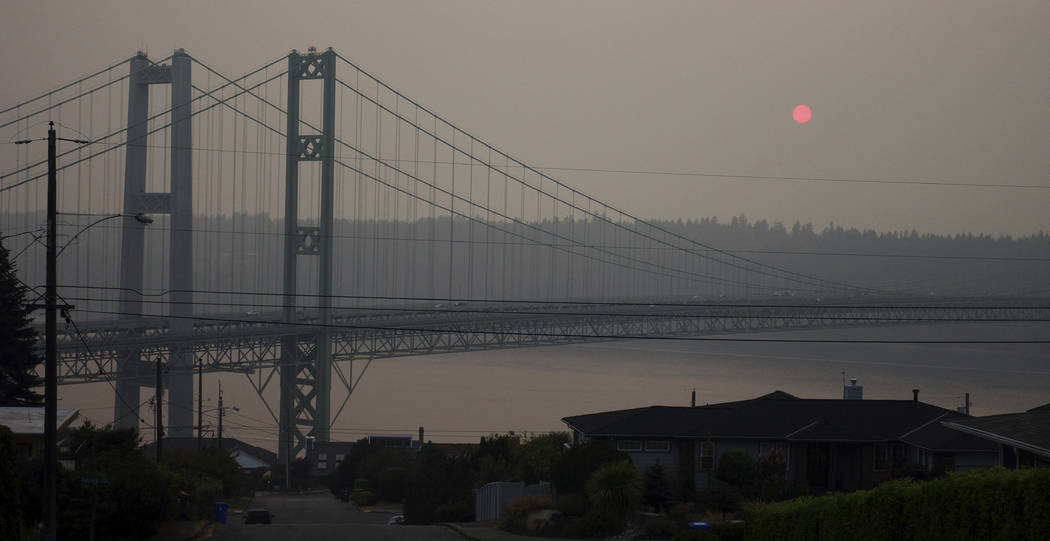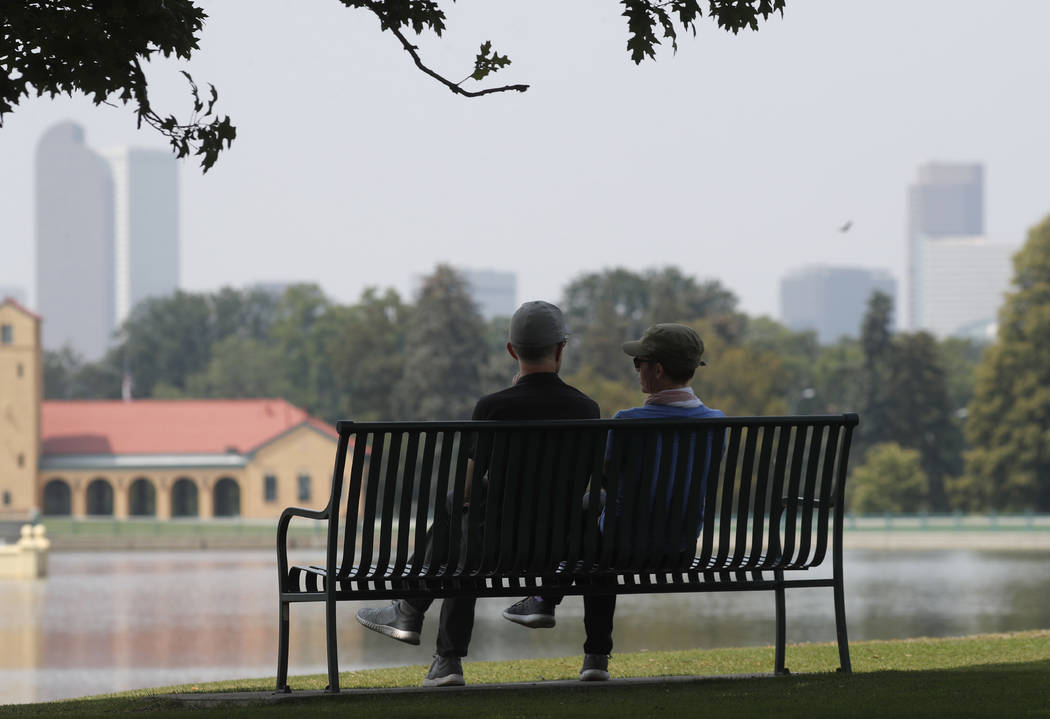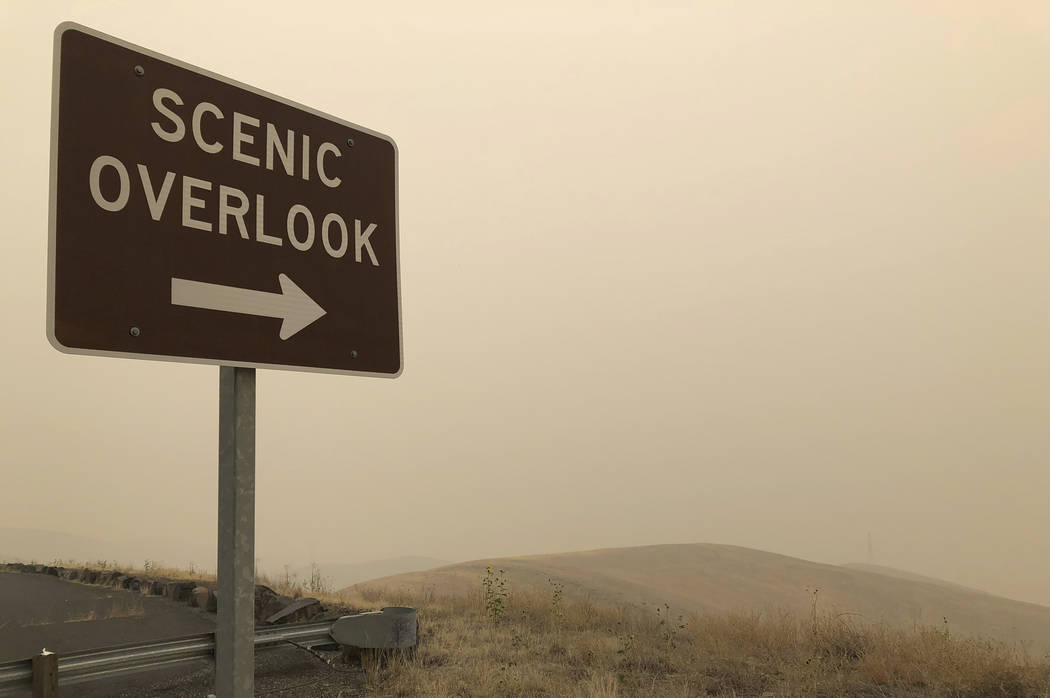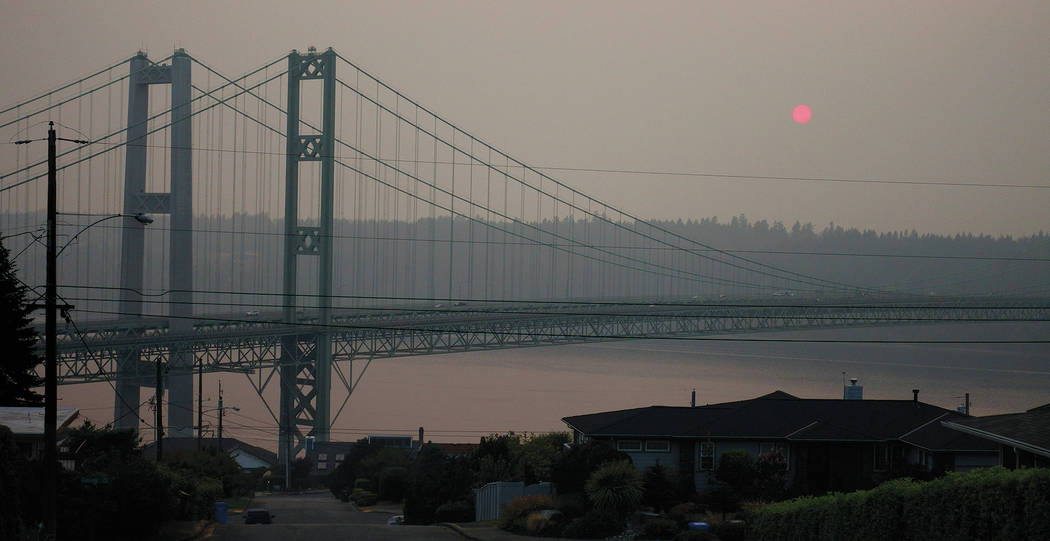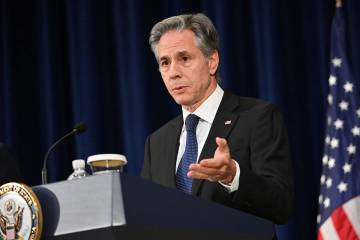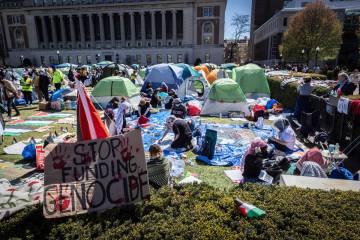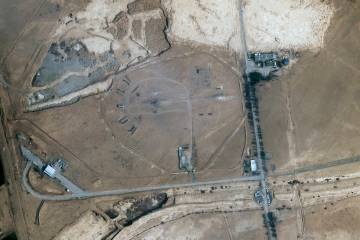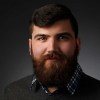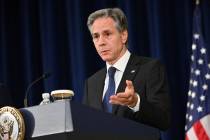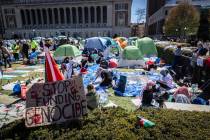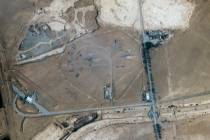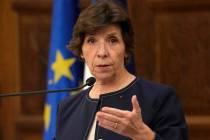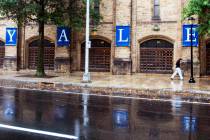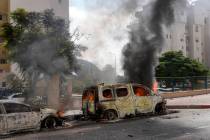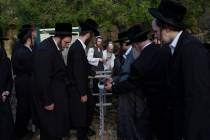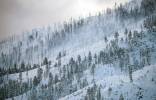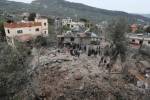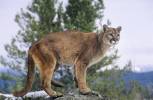Wildfires make air unhealthy from Washington to Colorado
SEATTLE -- Smoke from wildfires clogged the sky across the U.S. West, blotting out mountains and city skylines from Oregon to Colorado, delaying flights and forcing authorities to tell even healthy adults in the Seattle area to stay indoors.
As large cities dealt with unhealthy air for a second summer in a row, experts warned it could become more common as the American West faces larger and more destructive wildfires because of heat and drought. Officials also must prioritize resources during the longer firefighting season, so some blazes might be allowed to burn in unpopulated areas.
Seattle’s Space Needle was swathed in haze, and it was impossible to see nearby mountains. Portland,
Oregon, residents who were up early saw a blood-red sun shrouded in smoke and huffed their way through another day of polluted air. Portland Public Schools suspended all outdoor sports practices.
Thick smoke in Denver blocked the view of some of Colorado’s famous mountains and prompted an air quality health advisory for the northeastern quarter of the state.
The smoky pollution, even in Colorado, came from wildfires in British Columbia and the Northwest’s Cascade Mountains, clouding a season that many spend outdoors.
Portland resident Zach Simon supervised a group of children in a summer biking camp who paused at a huge water fountain by the Willamette River, where gray, smoky haze obscured a view of Mount Hood.
Simon said he won’t let the kids ride as far or take part in as many running games like tag while the air quality is bad.
“I went biking yesterday, and I really felt it in my lungs, and I was really headachy and, like, lethargic,” Simon said Monday. “Today, biking, you can see the whole city in haze, and you can’t see the skyline.”
In Colorado, Sid Vaughn, who works at a Boulder shoe store called the Boulder Running Co., did his usual 9-mile run Monday, despite the smoke.
“It didn’t feel that great to my lungs,” he said.
Forest fires are common, but typical Seattle-area weather pushes it out of the way quickly. The latest round of prolonged smoke happened as hot temperatures and high pressure collided, said Andrew Wineke, a spokesman for the state Ecology Department’s air quality program.
It’s a rare occurrence that also happened last year, raising concerns for many locals that it may become normal during wildfire season.
“The trend is clear. You see the number of forest fires increasing, and so there’s going to be wildfires,” Wineke said. “There’s going to be smoke. It’s going to be somewhere.”
The Federal Aviation Administration said airplanes bound for Sea-Tac International Airport, Seattle’s main airport, might be delayed because of low visibility.
In Spokane, air quality slipped into the “hazardous” range. Thick haze hung over Washington’s second-largest city, forcing vehicles to turn on their headlights during the morning commute.
The air quality was so bad that everyone, regardless of physical condition or age, will likely be affected, according to the Spokane Regional Clean Air Agency.
The haze caused Gonzaga and Eastern Washington universities to cancel soccer matches Sunday, and Spokane to delay some garbage service until Tuesday to protect workers.
In the San Francisco Bay Area, authorities issued an air quality advisory through Tuesday.
Health officials say signs of smoke-related health symptoms include coughing, scratchy throat, irritated sinuses, headaches, stinging eyes and runny nose. Those with heart disease might experience chest pain, irregular heartbeats, shortness of breath and fatigue.
Patients at Denver’s National Jewish Health, a respiratory hospital, were reporting worsening symptoms, hospital spokesman Adam Dormuth said.
In Portland, six tourists from Lincoln, Nebraska, posed for a photo in front of the Willamette River with the usual Mount Hood backdrop shrouded in haze. The group of siblings and friends rented an RV and drove in to visit a sister who recently moved to the area.
“We are disappointed that we can’t see the mountains and the whole city, because our relatives live here and tell us how pretty it is, and we’re missing it,” Bev Harris said. “We’re from tornado alley, and we don’t have wildfires. It’s a different experience.”
LV conditions improving
Breeziness this week should help improve conditions in the Las Vegas Valley, the National Weather Service said. Tuesday will bring 15 to 25 mph winds, according to the weather service, followed by 10 to 15 mph winds throughout the workweek.
The weather service is not expecting smoke from California wildfires to roll into the valley during the breeziness. Winds should also improve ozone conditions but might cause blowing dust, according to the Clark County Department of Air Quality.
Moderate ozone and smoke conditions are in the forecast this week for the county, according to the department's website.
A seasonal ozone advisory is in effect for Clark County through Sept. 30.
Blake Apgar
Las Vegas Review-Journal




